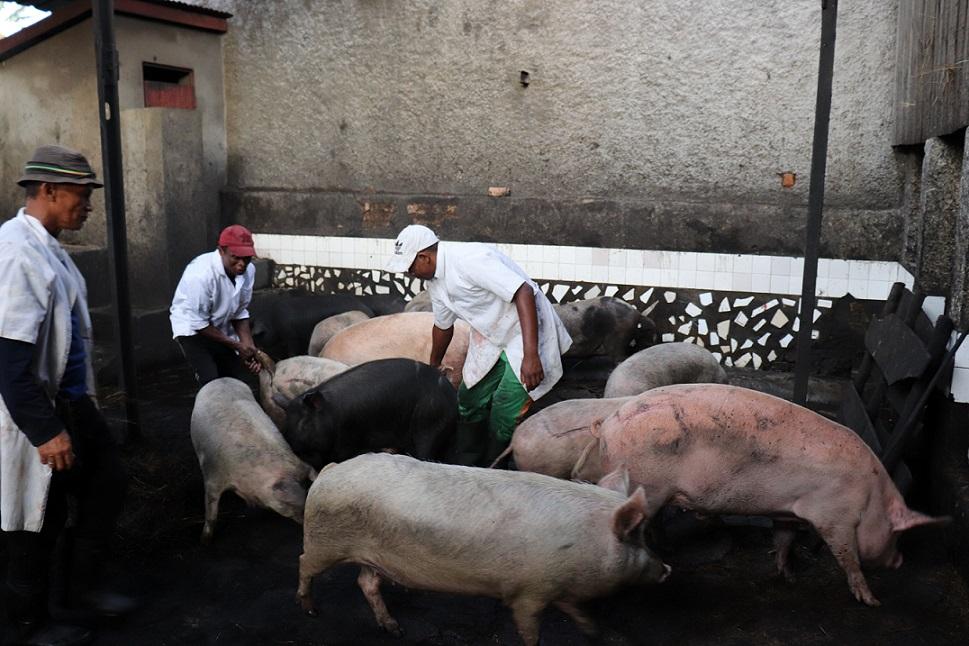- Home
- Worldwide
- CIRAD worldwide
- Projects
- TROI project
Tracking health risks in the Indian Ocean with a One Health approach - TROI

Bacteria resistant to antibiotics have developed in pig farms in Madagascar © V. Porphyre, CIRAD
Issues
Reunion Island is connected to the other countries of the Southwest Indian Ocean and East Africa, and to Europe. It is at the heart of substantial flows of humans, animals and animal products. This position and the importance of these flows make it a global hotspot for the emergence and spread of infectious diseases. Since 2008, Reunion Island and its partners have set up a network for the surveillance of infectious animal diseases (Sega One Health), which provides prompt information on outbreaks of contagious diseases and enables measures to be taken rapidly to prevent their spread. In total, 60 % of all diseases emerging in humans are of animal origin. To tackle them more effectively, it is important to work in an integrated manner with the animal health and human medicine sectors, while also including the environmental sciences: this is the “One Health” approach.
Description
The TROI project is part of the One Health network, and is organised around four actions:
- Improving the monitoring of infectious diseases by implementing alternative methods to support the network,
- Improving knowledge on vulnerability to infectious diseases and antibiotic resistance in the Indian Ocean in order to better anticipate health risks,
- Implementing innovative control strategies,
- Providing training to disseminate the knowledge acquired.
Expected changes / results
- A ranking of priority diseases according to how dangerous they are, and better understanding of the pathogens circulating in the area, will inform decisions on health and trade issues.
- The mapping of vectors of their resistance and of reservoirs in the area will help to predict outbreaks.
- The identification of factors that facilitate the introduction, spread and persistence of infectious diseases, detection tests (Rift Valley fever) that can be performed in the field, and maps to monitor vector-borne diseases will all enable the development of concerted health policies.
- New knowledge about antibiotic resistance and alternatives to antibiotics will be available.
- New training-action and distance learning courses will be provided on priority diseases, epidemiology and diagnosis.
- Epidemiological bulletins will be published on a quarterly basis.
- New smartphone applications will be used for the surveillance of infectious diseases in the area.
Expected impacts
This project aims to improve human health through better control of animal health and better quality animal products.
- Knowledge of the vulnerability of the Indian Ocean islands to infectious diseases, and of the factors that facilitate the introduction, spread and persistence of these diseases, will guide health and trade policies.
- Antibiotic resistance issues and understanding of the conditions for the emergence of resistant strains in commercial livestock farms will underpin health policies.
- Innovative methods will be implemented to monitor and control priority infectious diseases.
- The skills and capacities of the departments responsible for health issues in the Indian Ocean will be enhanced.
All partners are listed here























